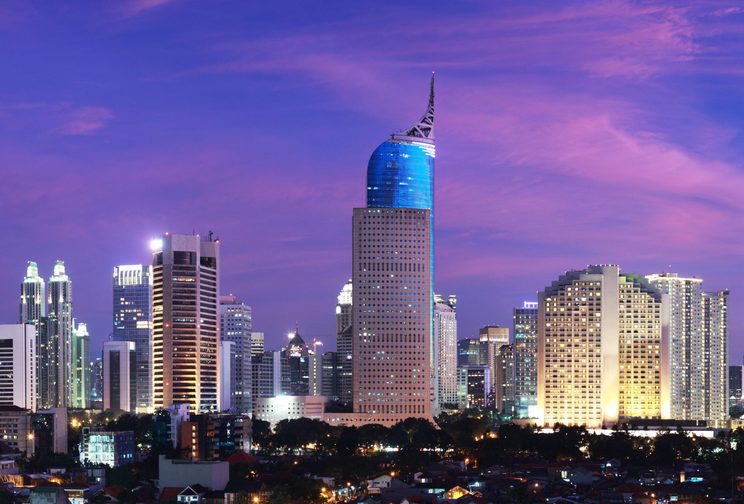Indonesia’s healthcare moment is now
With rising demand, bold reforms and a digital backbone now in place, Indonesia is opening its doors to long-term healthcare investment like never before.

Originally published in The Business Times.
The author, Rino Donosepoetro OBE, is Chief Executive Officer, Indonesia at Standard Chartered.
When I speak with clients across Asia, one topic continues to gain traction: healthcare. The pandemic may have accelerated interest in the sector, but what we are seeing now is a structural shift that is here to stay. In South-east Asia, healthcare spending is expected to rise from USD420 billion in 2022 to USD740 billion by 2030. Nowhere is this trend more visible or more compelling than in Indonesia, which offers a powerful combination of scale, urgency and policy momentum.
Indonesia’s healthcare sector is large and growing, yet still underdeveloped. With a population of 280 million, the country’s healthcare spending remains relatively low in ASEAN at just USD145 per capita. Compared with healthcare spending in countries such as Thailand or Vietnam, it is clear that the runway for growth is long. This is a nation where demand is rising, infrastructure is still catching up, and the regulatory environment is opening in ways that are both pragmatic and investor-friendly.
A system ripe for investment
The government has made healthcare one of its national priorities, and the recent reforms reflect that ambition. Indonesia’s universal health coverage scheme, JKN, now covers more than 95 per cent of the population. This has helped create predictable patient flows and payment structures, a key foundation for private investment.
Alongside that, the national digital health platform, Satusehat, now integrates more than 60,000 healthcare facilities. It standardises patient records, enables application programming interface – or API – connectivity, and supports tools such as artificial intelligence (AI)-powered diagnostics and telemedicine. For a country as vast and geographically dispersed as Indonesia, this digital infrastructure is essential to building a more inclusive and efficient healthcare system.
The Sanur Health Special Economic Zone in Bali is another bold step forward. Designed to recapture the estimated USD$10 billion that Indonesians spend abroad annually on medical treatment, it offers investors tax breaks, streamlined licensing and full foreign ownership. It is also the first zone in Indonesia where foreign physicians are allowed to practise. Investors such as the Swire Group from the United Kingdom are already taking advantage of these incentives, setting a precedent for others to follow.
At the regulatory level, progress is also tangible. Indonesia’s drug regulator, BPOM, is targeting World Health Organization Maturity Level 3 by 2025. This includes the introduction of fast-track approvals for essential medicines, vaccines and locally manufactured products. Shorter approval timelines and greater predictability are game-changers, especially for global pharmaceutical companies that previously faced significant delays.
Opportunities across the healthcare value chain
These regulatory improvements come at a time when the market fundamentals are also strengthening. Indonesia’s healthcare market is projected to reach USD11.6 billion by 2024, growing at a compound annual rate of 6 per cent through to 2028.
In terms of sectors, Indonesia’s pharmaceutical market dominates as the largest in ASEAN, valued at USD7.1 billion. Generics currently dominate, accounting for around 87 per cent of prescriptions.
Beyond pharmaceuticals, there are two immediate areas that stand out. Preventive healthcare is receiving strong government backing, with mass screening programmes and initiatives targeting cancer and chronic diseases. These will generate demand for diagnostics, long-term disease management, and a wide range of related services.
Digital health is another high-potential area, especially given Indonesia’s geography. AI-based imaging, virtual clinics, wearables and e-pharmacy platforms are all seeing rapid uptake and align closely with the country’s digitalisation agenda.
While the opportunities are many, investors must also understand the challenges. The healthcare workforce is stretched thin, with just 192,000 doctors and 29,000 specialists serving Indonesia’s entire population. Most hospitals are concentrated in Java, leaving rural areas underserved. Infrastructure gaps remain, but they also represent areas where foreign investment can make the greatest impact.
Another key issue for some investors is the local content requirement in public procurement, which currently stands at up to 70 per cent. At first glance, this may seem like a barrier. However, this opens the door for investors to invest in domestic manufacturing, as Indonesia currently imports 90 per cent of its pharmaceutical raw materials and more than half of its medical devices.
The government is keen to reduce this reliance on imports, and has introduced significant incentives to encourage local manufacturing, including a super tax deduction of up to 300 per cent for research and development.
Why this window should not be missed
This is a promising moment for healthcare investment in Indonesia. Foreign ownership rules have been relaxed, while education reforms are opening the door for foreign universities to train the next generation of healthcare professionals, helping to expand both capacity and capability.
Meanwhile, Indonesia compares favourably to its ASEAN peers, not only in terms of scale but also in terms of need. Unlike smaller markets that serve primarily as hubs, Indonesia itself is the market. It is large enough to justify onshore investments, with the domestic demand to support economies of scale.
At Standard Chartered, we see it as our role as a super connector in this fast-growing space. With over 160 years of history in Indonesia and a presence across all 10 ASEAN markets, we work closely with governments, investors and institutions to bridge capital with opportunity. We have been the sole sovereign rating adviser to the Republic of Indonesia since 2014, and we support investment facilitation efforts at both the national and ASEAN levels.
For investors, the message is simple. Healthcare in ASEAN is a fast-growing sector, and Indonesia is at the centre of it. The time to invest is now.
Source: The Business Times© Singapore Press Holdings Limited. Permission required for reproduction.
Corridors in focus: Our clients – Marubeni
In this client story, Marubeni Middle East & Africa Power Limited ("Marubeni") shares how Standard Chartered…